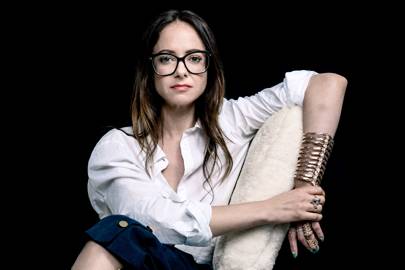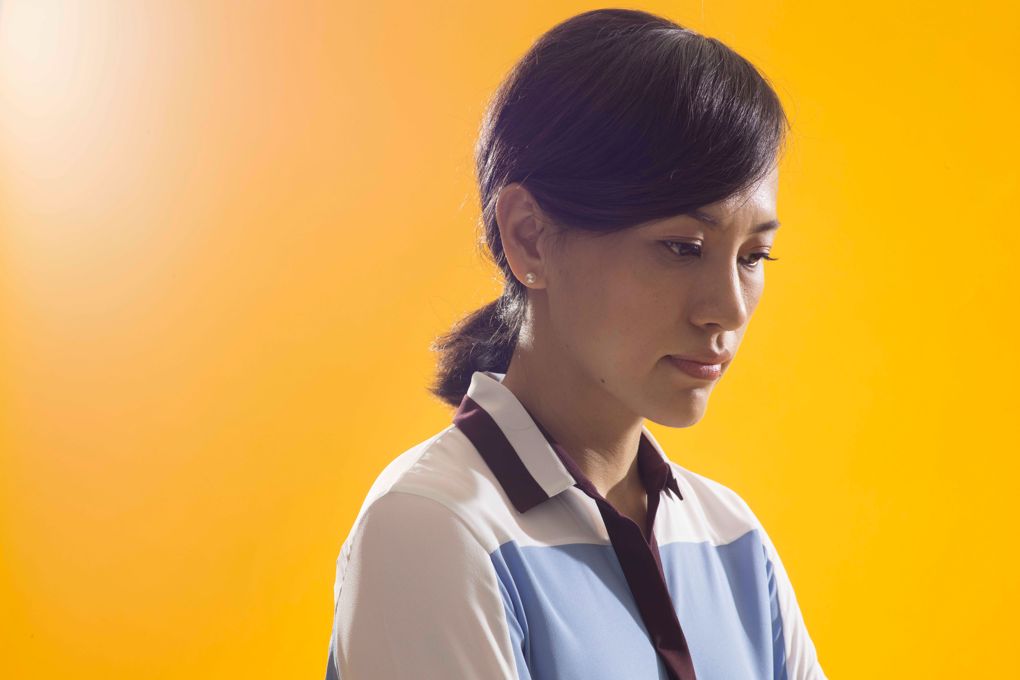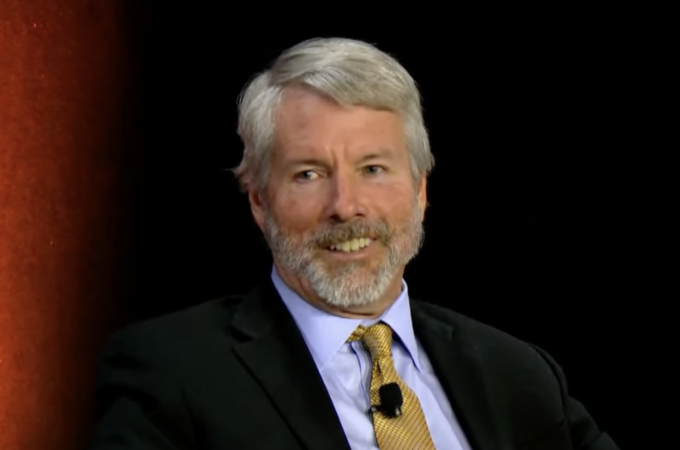On International Women’s Day, these are the female innovators you should know about
By Wired,
This International Women’s Day, WIRED is celebrating women who are pushing boundaries across the fields of technology, science, design and innovation.
Women remain underrepresented in these sectors, and events of the past year have highlighted some of the issues they face along the way, from pay inequality to sexual harassment.
In 2017, only 17 per cent of US startups had a female founder, and all-female teams received just 2.2 per cent of venture capital funding (all-male teams got 79 per cent). According to the companies’ most recent diversity reports, only 30 per cent of jobs at Google and 35 per cent of jobs at Facebook are filled by women – a number that sinks to 20 per cent when considering only tech roles.
To mark International Women’s Day 2018, we asked some of the women we admire across the WIRED world to nominate a female innovator whose work they feel deserves greater recognition.
Here are their picks of women to watch.
Jean Liu, president, Didi Chuxing nominates Wang Qi, rural e-commerce promoter
Wang Qi transformed the lives of subsistence farmers in her hometown by showing them the huge benefits of e-commerce. In 2015, Qi turned down a banking job in Beijing, choosing instead to return home to bring farmers online and connect them with previously inaccessible markets across China through “Cuntao” or “Rural Taobao”, Alibaba’s online shopping website for rural villages.
Qi introduced farmers to new, higher-yielding crops and technologies, and helped them to export produce to new regions. Thanks to her innovations, farmers in some places saw earnings triple. Her ability to apply modern technology to connect farmers to the world, diversify their sources, and improve process management and sales, improved the lives of hundreds of impoverished families. Qi’s ingenuity, courage and selflessness are an inspiration to us all and a reminder to never stop pushing the boundaries of what is possible to help others.
Susan Fowler, software engineer and author nominates Tiffani Ashley Bell, executive director, The Human Utility
Tiffani Ashley Bell is the founder and executive director of The Human Utility, a startup that helps people in Detroit who can’t afford to pay their water bills – so far, they’ve helped over a thousand families. She leads by example, showing us the very best possible side of Silicon Valley, having put her engineering and business skills toward helping the people who need it most. She is one of those rare startup founders – and, frankly, one of those rare individuals – who can truly say that their startup is making the world a much better place.
Rosalind Picard, founder and director of the Affective Computing Research Group, MIT nominates Maja Pantic, professor of Affective and Behavioral Computing, Imperial College London
Dr. Pantic is brilliant, inspiring, hard-working, and a great person to work with. She has led an enormously productive team of researchers at Imperial College, bringing state-of-the-art machine learning and AI analytics to human-robot interaction to help people with autism and to advance the state of the art in Affective Computing – a field of growing importance to the future of human-AI interactions. She is also an excellent communicator who raises the enthusiasm of the entire community, promoting both excellence and hard work, with research targeted for purposes that make human lives better.

Carrie Goldberg, sexual privacy lawyer
Carrie Goldberg, internet privacy and sexual consent lawyer nominates Mona Sedky, federal prosecutor, US Department of Justice
Mona Sedky is a fantastic federal prosecutor with the US Department of Justice who investigates and tries cases that involve computer crime and intellectual property. She’s been instrumental in bringing awareness towards sexual extortion, an issue my firm has worked hard to fight by participating in studies, drafting laws and representing victims who are being extorted. Mona is just the definition of an unsung hero, working tirelessly to protect us from the scourge of the earth: malicious hackers, pedophiles, relentless stalkers.
Adwoa Aboah, model and activist nominates Kelsey Knight and Emily Varnam, founders, The Fifth Vital Sign
I nominate nurse Kelsey Knight and doula Emily Varnam, founders of The Fifth Vital Sign, as pioneers in the field of reproductive health education. The collective tours America to deliver classes on contraception, the menstrual cycle and consent to girls and women in schools, universities and communities. They prove innovative in their multi-faceted approach; subjects are tackled by various voices to produce a balanced perspective on a range of “taboo” topics, providing accessible and relatable information via their social media channels, online library of resources and free talks.
Charmian Love, entrepreneur in residence at the Skoll Centre for Social Entrepreneurship nominates Kresse Wesling, co-founder, Elvis & Kresse
Kresse Wesling is a force of nature. She is a savvy business woman, environmental activist, and a “systempreneur” with an ambition to help the world rethink waste. Her company, Elvis & Kresse, tackles the build-up of materials in our landfills by finding creative ways to transform waste streams, such as decommissioned firehose and leather offcuts, into luxury accessories. She does this with an infectious spirit and aims to reset the rules of the game (if you ask her about the turnover of her business she’ll respond by sharing the tonnes of waste they’ve diverted from landfill). High-five to Kresse – a “profit with purpose” pioneer.
Sue Black, director, Centre for Anatomy & Human Identification, University of Dundee nominates Sue Black, computer scientist and author
Sue Black was a single mother of three who left school at 16 and lived in a women’s refuge but took maths access courses at night school which then led to a university degree and finally a PhD. She ran the successful campaign that saved Bletchley Park, the WWII centre for decrypting enemy messages. Her book Saving Bletchley Park: How Social Media Saved the Home of the Codebreakers was the fastest crowd-funded book of all time. She set up TechMums and in 2016 she was awarded an OBE for services to technology. The Independent cites her as a “key voice in an increasingly digital future”.
Samantha Payne, co-founder, Open Bionics nominates Anouk Wipprecht, designer
The first time I met Anouk was in San Francisco, 2014. I had just stepped off the stage after delivering my first ever startup pitch to Intel CEO Brian Krzanich and tennis superstar Venus Williams, among other business elites. I was shaking and felt totally out of my depth; this was my first experience of the valley and startup culture. But Anouk came straight over to me, grabbed my hand and led me through the crowd to introduce me to a writer at Make magazine.
She immediately became a champion of my work. What a hero! She is a true maker and force to be reckoned with. She is incredibly playful with technology; her work is provoking and demands attention. Anouk uses technology to explore interaction, personality, intimacy and personal space. Check out her Spider Dress or collaboration with BMW.
Haiyan Zhang, Innovation Director, Microsoft Research Cambridge nominates Emma Lawton, creative director and campaigner
I met Emma in 2016 as part of a BBC documentary series called The Big Life Fix. It had been about four years since her diagnosis at age 28 with Parkinson’s disease. Emma had studied graphic design in college and was working as a creative director in a London design agency. Despite her progressing tremor as a result of Parkinson’s, Emma continued to forge a career in her chosen field. No longer able to draw or write with a steady hand, she sat with a colleague who turned her words and thoughts into sketches and wireframes for clients.
Emma has become a powerhouse – a spokesperson for Parkinson’s and an inspiration for people battling chronic illness through her talks and YouTube channel. Emma has also established a digital apps panel at Parkinson’s UK, where she works to evaluate new app technologies that support people with Parkinson’s.
Sarah Drinkwater, Head of Campus London, Googlenominates Tracy Doree, founding partner, Kindred Capital VC
Investors, and what investors value, influences not just how companies grow but what kind of startup they build – and who starts them in the first place. Tracy is one of four partners at Kindred and I love their model, which gives every founder they invest in carry in the fund, effectively making them co-investors. This founder-first mentality clearly comes from Tracy’s background as cofounder of design store Llustre (acquired by Fab a mere seven months in) and I hear people rave about how she personally helps entrepreneurs in their portfolio go further.

 Susan Fowler, Jean Liu and Adwoa Aboah share the names of women they look up to across technology, science, design and innovation
Susan Fowler, Jean Liu and Adwoa Aboah share the names of women they look up to across technology, science, design and innovation



